|
|
|
|
This week, we took The Conversation’s podcast, Don’t Call Me Resilient, on the road! We went to Vancouver to interview Indigenous media expert, Karrmen Crey, associate professor of communications at Simon Fraser University and the author of Producing Sovereignty: The Rise of Indigenous Media in Canada.
We spoke with Crey at Iron Dog bookstore in front of an engaging audience, many of whom were students of Simon Fraser University’s inaugural Amplify Podcasting School. (I was guest faculty at the school for the week.)
In our conversation, we explore the exciting growth of Indigenous media – films, television and reality TV – over the last 30 years.
Indigenous filmmakers, producers, and artists have had to navigate the complex and often unfriendly terrain of Canadian media institutions and media production companies. Their negotiations — and struggles — have helped make space for a generation of Indigenous media makers who are increasingly making shows and films on their terms, with greater control of their narratives.
Crey speaks about the ways Indigenous creators are using humour along with a sharp critique of pop culture to show just how different the world looks when decision-making power over how stories get told shifts and Indigenous media makers take control.
Crey, who is Stó:lō from Cheam First Nation and focuses on Indigenously produced and created media in Canada, says: “I’m hoping that non Indigenous people are seeing [this new media] and not only registering it as being funny, but registering it just how sharp and smart it is. There’s a lot of critical insight from those perspectives and I’m hoping it’s priming them to be more receptive and thoughtful about, looking at things from Indigenous perspectives.”
The audience has great questions too! Listen all the way to the end to hear them.
This episode was produced in front of a live audience at Iron Dog Books in Vancouver, in partnership with Simon Fraser University’s Faculty of Communication, Art and Technology and the Amplify Podcast Network.
Also today:
All the best.
|

|
Vinita Srivastava
Host + Producer, Don't Call Me Resilient
|
|
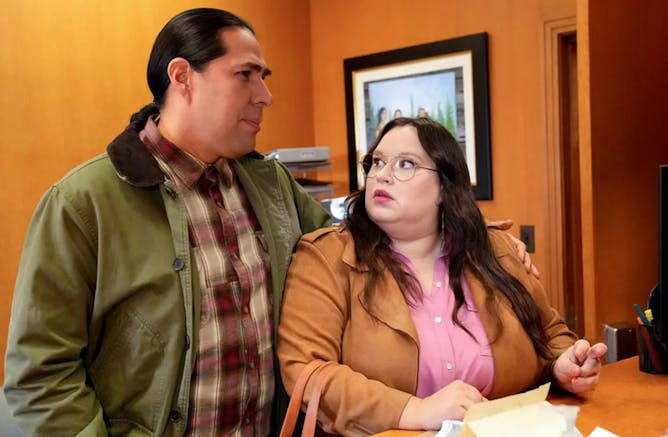
Indigenous media makers are successfully gaining more control over their storytelling. Here Dallas Goldtooth and Jana Schmieding as Nelson Renville and Reagan Wells in the sitcom, ‘Rutherford Falls.’
(Goldtooth Schmieding/Peacock)
Vinita Srivastava, The Conversation; Dannielle Piper, The Conversation; Ateqah Khaki, The Conversation
Indigenous media have rapidly expanded over the last 30 years with Indigenous media makers gaining greater control of their narratives.
|
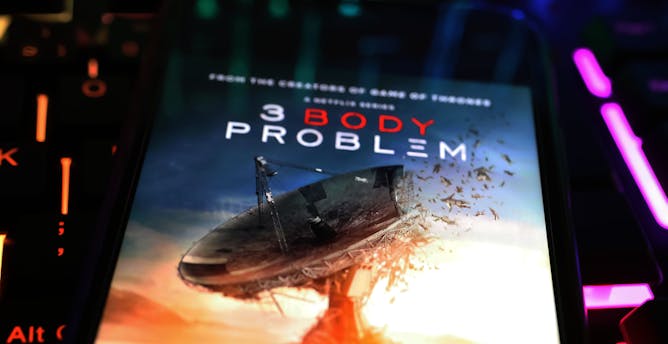
The three-body problem is a familiar puzzle in astrophysics.
(Shutterstock)
Peter Watson, Carleton University
The Netflix series ‘3 Body Problem’ is based on Liu Cixin’s scifi novel that follows what happens to the alien residents of a planet that orbits two stars.
|
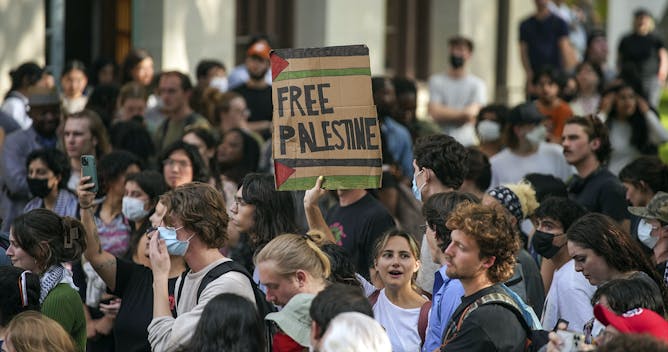
A student holds a ‘Free Palestine’ sign at a rally at the University of Texas April 24, 2024, in Austin, Texas, one of many gatherings following the arrest of more than 100 demonstrators at Columbia University protesting Israel’s war in Gaza.
(Ricardo B. Brazziell/Austin American-Statesman via AP)
Adam Davies, University of Guelph; Zuhra Abawi, Niagara University
Ontario’s Strengthening Accountability and Student Supports Act threatens to undermine university autonomy, and could serve to censor critical thinking and dissent on campuses.
|
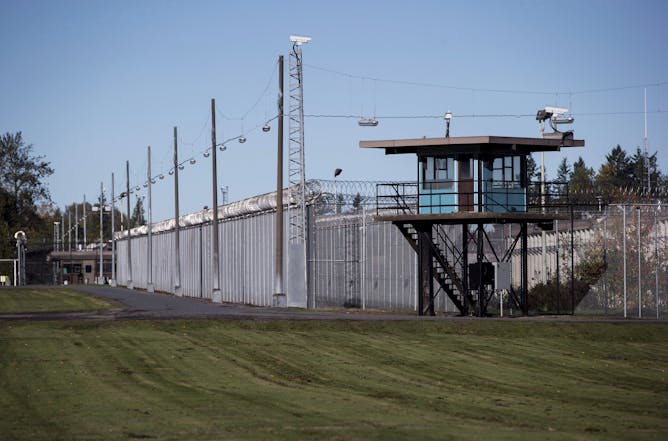
The Matsqui Institution, a medium-security federal men’s prison in Abbotsford, B.C. The Canadian government plans to amend legislation to allow detained migrants to be held in federal prisons.
THE CANADIAN PRESS/Darryl Dyck
Jessica Evans, Toronto Metropolitan University; Linda Mussell, University of Canterbury
Placing migrants who are not criminals in prisons risks serious violations of their human rights and perpetuates narratives about the criminality of immigrants.
|
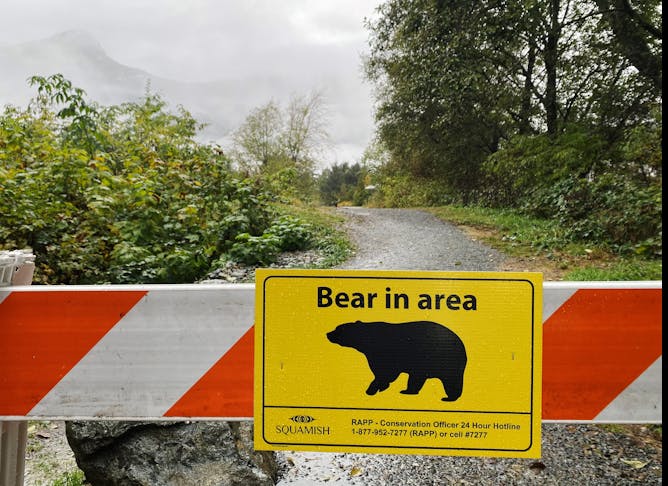
A sign warning of a bear in the area is shown in Squamish, B.C. in November 2022.
THE CANADIAN PRESS/Amy Smart
Bryce J. Casavant, Royal Roads University
The B.C. Conservation Officer Service is a police-like body which is not subject to police oversight. This must change.
|
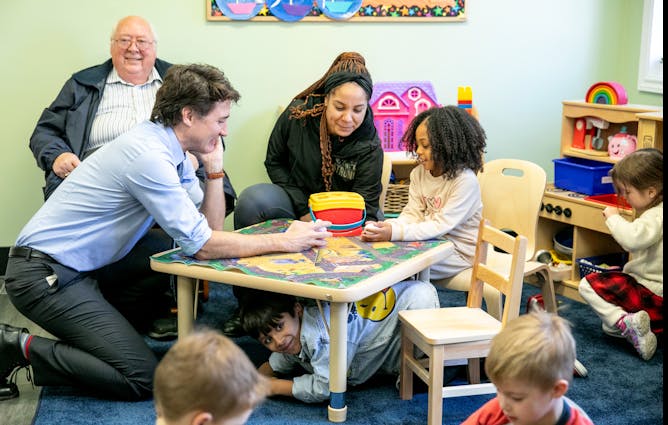
Affordability targets have been surpassed with $10-per-day child care the norm in much of the country, but depending on where you live, finding care can be onerous. Prime Minister Justin Trudeau visits a child-care centre in Dartmouth, N.S. on April 2, 2024.
THE CANADIAN PRESS/Kelly Clark
Kerry McCuaig, University of Toronto; Emis Akbari, University of Toronto
The Early Childhood Education Report offers detailed profiles capturing how each province and territory are doing with implementing Canada-wide early learning and child care.
|
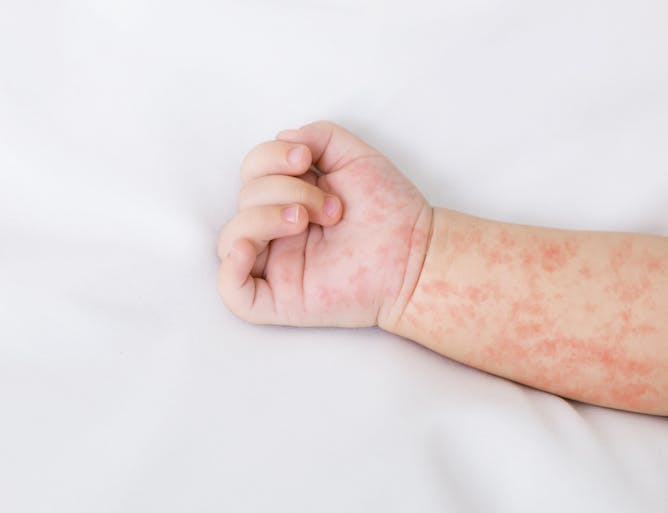
Measles, once on the brink of eradication, has resurged, exacerbated by the disruptions caused by the COVID-19 pandemic interfering with routine vaccination programs.
(Shutterstock)
Kirsten Fiest, University of Calgary; James Talbot, University of Alberta; Jason Cabaj, University of Calgary
The resurgence of measles and whooping cough is troubling. The most effective way to prevent the return and spread of vaccine-preventable diseases is through vaccination and combating vaccine hesitancy.
|
La Conversation Canada
|

Le candidat républicain à la présidence, l'ancien président Donald Trump, visite Atlanta, le 10 avril 2024, à Atlanta.
(AP Photo/Jason Allen)
Francis Dupuis-Déri, Université du Québec à Montréal (UQAM)
L’intersectionnalité des haines, qui allie notamment racisme, antisémitisme et misogynie, conduit l’homme blanc hétérosexuel à se croire une victime des « minorités » contre lesquelles il doit résister.
|
Podcasts
|
-
Gemma Ware, The Conversation; Thabo Leshilo, The Conversation
The third and final part of our series What happened to Nelson Mandela’s South Africa on The Conversation Weekly podcast. Featuring interviews with Sithembile Mbete and Richard Calland.
|
|
Arts
|
-
Emily Cullen, University of Limerick
Gradually, with more life experience, I have gained perspective and poetic nerve.
|
|
Business + Economy
|
-
Miranda Kitterlin-Lynch, Florida International University
Conservatively speaking, workplace violence costs hundreds of millions of dollars each year.
|
|
Science + Tech
|
-
Sarah Florini, Arizona State University
TikTok is hardly a model social media platform, but it’s also far from an outlier when it comes to threats to Americans.
|
|
|
|
| |
| |
| |
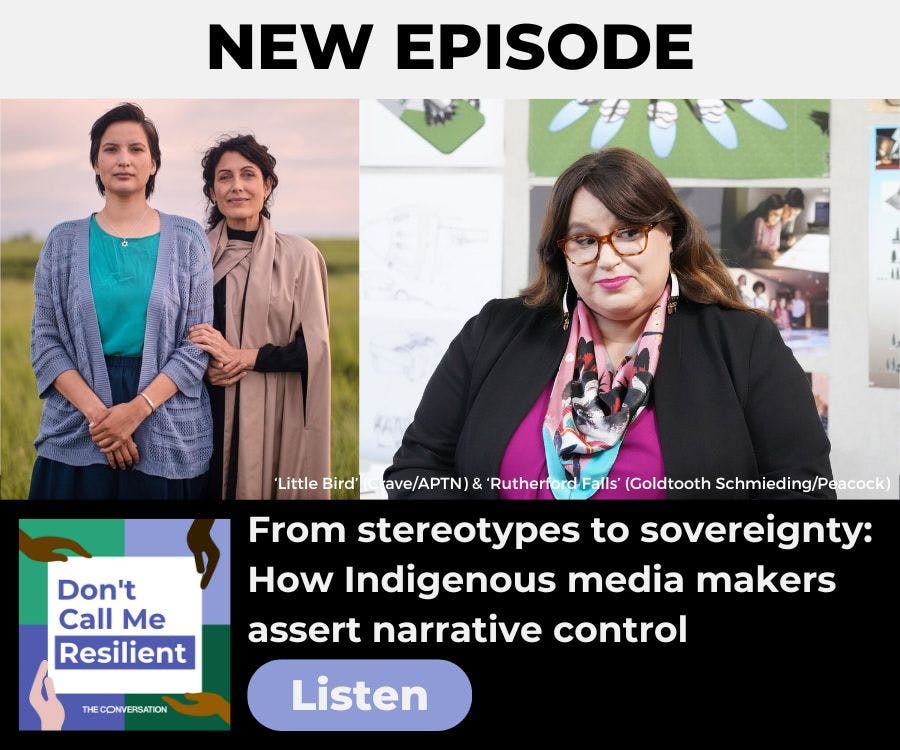
|
| |
| |
| |
| |
| |
| |
|
|
|
|
|
|
|